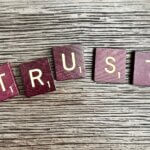I turned 50 in January, and the months leading up to my birthday were riddled with angst, as I envisioned myself dying several days after turning 50—just like my mother did. My fears may have seemed overblown unless you knew that my her father died at 54, and my mother had long feared that like my grandfather, she too would die early in life. While I still have a certain fear that longevity may not be in the cards for me, given that my own father didn’t live to see 70, most of that fear has dissipated—even as I face a battery of necessary screenings for potential issues, including one that has the potential to turn up the big C.
In the months since my birthday, I have found myself becoming contemplative about my life and future. Which is almost surprising, seeing as how my entry into my fifth decade was less than ideal. In fact, enough time has passed that I can honestly say it: My actual 50th birthday celebration sucked. It was an almost comical case of life going unexpectedly wrong. A real life version of you can’t make this shit up. While the details are not for public sharing, I can say that 10 days before my actual birthday, a full-blown crisis occurred that indirectly impacted me, as it directly affected the man that I was seeing.
However, from that crisis came a level of growth and the opportunity to be true to myself—to be authentic—far beyond the talking points. As horrific and disruptive as that moment was, it pushed me to a level of growth that required true authenticity and the practice of love as an embodied experience; as something felt deep in the depths of my being. Interestingly enough, it was that moment in our relationship that surprisingly has led to significant personal and professional growth.
This has become the year of navigating honesty and truth. A year of pairing down my life and turning inward, this has allowed me to deepen my framework around anti-racism work. Which is how I have come to the conclusion that far too much of what is considered anti-racism work lacks core connections and authenticity.
When anti-racism work broke through the mainstream several years ago—starting with the increased popularity of the Black Lives Matter movement and the horrors of the Trump presidency—there was a rapid influx of anti-racism practitioners, many using social media to draw attention to their work. Between social media and racial justice conferences, it was a juicy and lucrative time to be in the work. Practitioners didn’t have to mine deep in their being to do the work. The right vocabulary, sprinkled with righteous indignation and pretty graphics, made you a hot commodity. Bonus points for large social media followings.
The problem is, in reflecting on many of the people I have met in my journey on the professional practitioner side, much of the work feels transactional and, honestly, even the relationships we have with each other as “professionals” feel transactional. Over the years, while I have attended the occasional racial justice conference, and while I met some decent people, I often left with a feeling that I couldn’t describe.
But I can now.
Hollow.
Like, how are we here to do this work but marketing ourselves using the same models of whiteness and business that got us into trouble to begin with? Isn’t that counterintuitive to our supposed mission? The feeling at conferences was that people always wanted to get to the superstars of the moment to catch up. There was constant networking. Or even the way that many of these conferences are low-key exploitative, in that oftentimes workshop presenters are not paid for their labor. They just got comped for their registration.
Far too many of us accepted this as a norm, but why?
How the hell can we position ourselves as the experts on addressing racism while upholding the worst parts of capitalism through economically abusive practices?
Even when presented with “free” registration, unless the conference is located in your locale, there are the assorted financial costs, such as airfare, gas, hotel, and meals while away. I have never attended a conference and spent less than a thousand dollars. Then throw in the labor required to present and the actual presentation. Why is this acceptable? For networking opportunities?
Meanwhile, how much are the actual conference organizers netting? And why are we using the master’s tools to supposedly dismantle the master’s house? Are we creating authentic relationships in our own communities or are we collecting people to collaborate with in the future?
More importantly, are we creating authentic connections with the people who we work with—our audience? Are we modeling how to be in authentic relationships with one another? Perhaps it is that lack of authentic being that has left so many well-meaning white people adrift in this work. All the podcasts, conferences, and books in the world will not empower you to courageously bring your authentic self to this work. Oh, you will try it, but if you don’t have a crew or some level of support, can you stay in it?
Also, what is our responsibility as anti-racism practitioners to the larger world, including the people who follow us on social media? Do we create connections in what we share, or are we engaging just enough to lock in the next transaction? These are the questions that I ask myself regularly. I want to bring the same level of authenticity to all my endeavors in life, whether it is an unexpected life crisis, dealing with trolls, or facilitating a group. I want to be grounded enough to be real, even in the messy and vulnerable moments.
As the anti-racism world grapples with the seismic shifts in our work, I think this work will require us to get real; to move beyond the business of anti-racism work and into the heart of it, which starts with examining ourselves. As a Boston colleague often says, this is heart, hands, and feet work. We can all benefit from thinking of it this way. It is clear that keeping it strictly in the head realm is of no value to anyone.
This work should move us. At a certain point, we should be growing in all areas of our lives and seeing our mindset shift as we begin to understand that anti-racism work isn’t just about the betterment of marginalized people. It is about envisioning and building new ways of being for all of us. Speaking of truth and authenticity, I only recently got the courage to tell the fella in my life that despite what I had said at the time of the crisis, my birthday actually was shitty. Given the gravity of what he had been facing, it wasn’t appropriate to be radically honest at the time, so I downplayed how annoyed I was. But now that the crisis has passed, and normality is coming back into our lives, it was time to be honest. The end result, barring anything unexpected, is that my 51st birthday will be a do-over. I share this to say there are times, when our true and authentic selves may need to juggle the humanity and struggle of others and the kind and caring thing is to hold off, in order to support others and where they are. However, we should always be able to circle back around to our authentically truest selves, when we have a core connection to others.
If this piece or this blog resonates with you, please consider a one-time “tip” or become a monthly “patron”…this space runs on love and reader support. Or consider bringing me to your organization or group.
Image by Philippe Oursel via Unsplash


